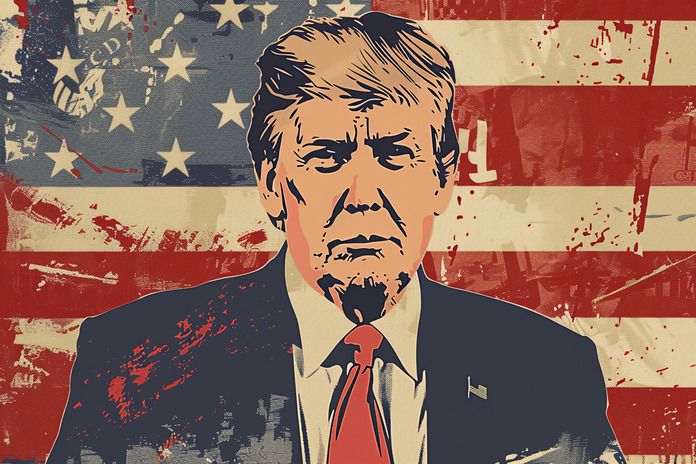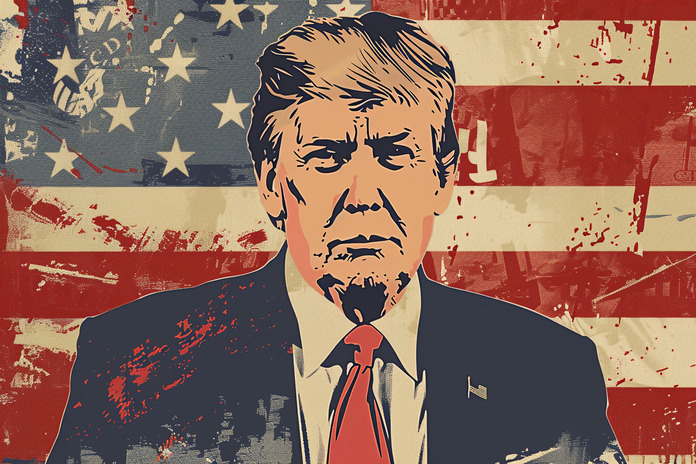Crypto Decline Hits Trump-Linked Coins and Stocks

Cryptocurrencies and related equities struggled Thursday as Trump-linked crypto decline hit both tokens and publicly traded treasury companies. Despite broader market optimism fueled by expectations of future Federal Reserve rate cuts, digital assets refused to join the rally.
Trump-Associated Tokens See Sharp Losses
Shares of ALT5 Sigma Corp. (NASDAQ:ALTS), a treasury firm holding the WLFI token tied to the Trump-affiliated World Liberty Financial Inc., plunged roughly 12%, marking a steep weekly loss exceeding 50%. The WLFI token itself fell about 25%, down roughly half since its Labor Day debut. Meanwhile, American Bitcoin Corp. (NASDAQ:ABTC), a crypto mining outfit involving Eric Trump, dropped 22% in trading.
World Liberty Financial attempted to soothe investor concerns through a live event on CoinMarketCap’s website attended by over 2,000 participants. A company spokesperson emphasized efforts to deliver products like USD1 to expand DeFi access globally.
Regulatory Oversight Weighs on Treasury Companies
The pullback in Trump-linked crypto decline is also linked to potential regulatory scrutiny. Nasdaq is requiring some token-holding companies to obtain shareholder approval before issuing additional shares for token purchases. This slows the pace at which treasury firms can use equity offerings to buy more cryptocurrency, a strategy popularized by Michael Saylor of Strategy (NASDAQ:MSTR).
To date, 184 publicly traded companies have announced plans to raise over $132 billion to acquire cryptocurrencies, according to financial advisory firm Architect Partners. Eric Risley of Architect Partners noted that shareholder oversight is beneficial for transparency, even if it reduces transaction velocity.
Broader Crypto Market Impact
Other treasury companies have also suffered, dragging down underlying token prices. Sharplink Gaming (NASDAQ:SBET) fell nearly 10%, and its Ether (ETH-USD) holdings dropped 3.3%. DeFi Technologies (NASDAQ:DEFT), holding Solana, saw a 4.6% decline, while Solana fell 3.8%. Investors are recalculating token values based on balance sheet exposure, according to WLFI investor Morten Christensen.
Some traders in WLFI tokens were discouraged by a higher-than-expected circulating supply. Early investors who purchased between 1.5 cents and 5 cents began taking profits, adding to the selling pressure.
Macro Factors Intensify Volatility
The Trump-linked crypto decline coincides with cooling U.S. labor market data. August hiring and unemployment figures indicated muted employer enthusiasm for new hires. With Fed policymakers having held rates steady after a full percentage-point cut last fall, investors are cautious ahead of the next Fed meeting.
Shiliang Tang, managing partner at Monarq Asset Management, noted that some market participants are “derisking a bit ahead of tomorrow’s employment data,” highlighting macroeconomic factors influencing crypto and equity movements.
Bitcoin and Market Benchmarks
Bitcoin (BTC-USD), often a market bellwether for digital assets, declined roughly 2% to around $109,800, sitting at the lower end of its recent trading range. The cryptocurrency traded at approximately $69,000 before last year’s election and reached a record just above $125,000 on August 14, illustrating the ongoing volatility in the sector.
Outlook for Investors
The combination of regulatory scrutiny, cooling labor market data, and volatile token supply underpins the ongoing Trump-linked crypto decline. Investors in crypto-related treasury stocks and tokens should carefully monitor both macroeconomic signals and company-level developments to gauge potential recovery or further downside.
Looking ahead, the path for Trump-linked crypto decline remains uncertain. Investors should watch regulatory developments, token supply adjustments, and overall market sentiment closely. Treasury companies tied to high-profile figures may see heightened volatility, while broader digital assets could rebound if macroeconomic conditions improve. Risk management and careful position sizing will be critical, as short-term swings may offer trading opportunities but also amplify potential losses in this fast-moving, politically influenced segment of the cryptocurrency market.
Featured Image: Freepik @ produtizebro













